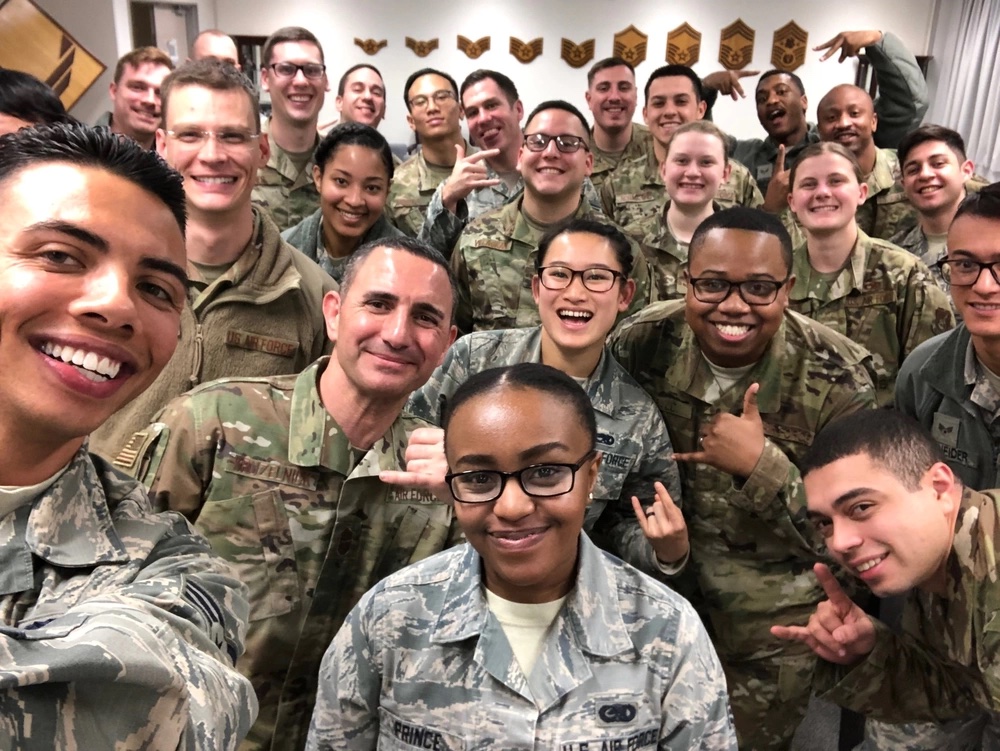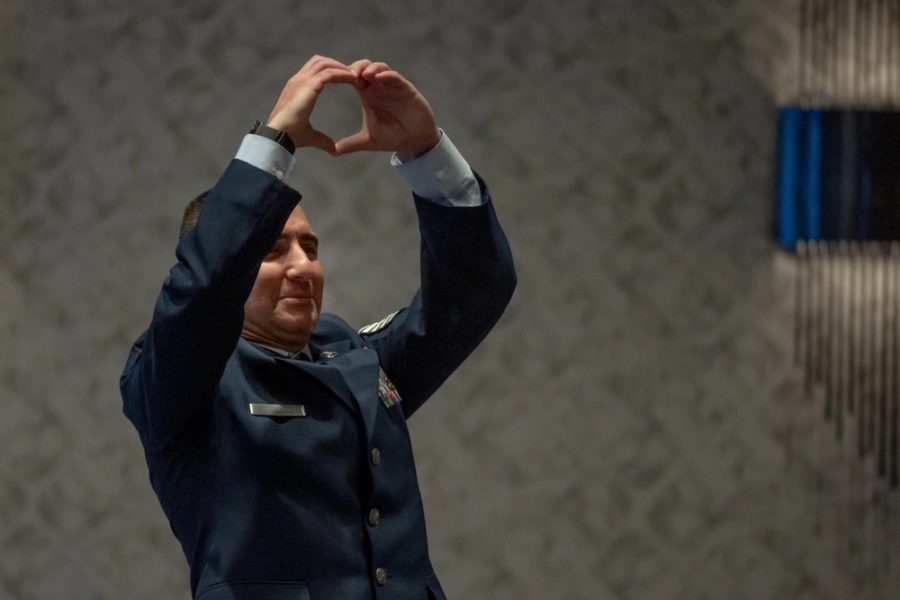On June 13, the Pentagon announced Chief Master Sgt. Brian P. Kruzelnick, the top enlisted member of Air Mobility Command, had been selected as the next command senior enlisted leader for U.S. Transportation Command, which oversees the movement of troops and equipment around the world.
The prestigious assignment is the latest in a series of leadership roles stretching back over Kruzelnick’s 29-year Air Force career. But the Airman did not always show such promise—Kruzelnick had a tough start in life, which contributed to tough start in service.
“I came from the mean streets of New Jersey, struggling to survive in the world in which I lived,” Kruzelnick, a native of Passaic, wrote in a blog post about his early military career on The Mobility Forum after taking on his current role at AMC in 2020.
“I lacked basic physical and psychological needs, from shelter to a feeling of belonging,” he said.
On the recommendation of a friend, Kruzelnick enlisted in the Air Force as an aircraft maintainer, but the early years were a challenge.
“It was hard to correct my undisciplined and unstructured background to meet military expectations, which led me to be a less-than-desired Airman,” he wrote. “Living in ‘survival mode’ for so long made me combative and stopped me from developing healthy relationships. Although I did have a strong work ethic, my behavior was not acceptable.”
Specifically, the chief told Air & Space Forces Magazine that he would “find myself in altercations with others and have my First Sergeant pick me up at the Security Forces Squadron, and I had problems with authority as I felt everything was a personal attack or I had to always show ‘strength.'”
As time went on, Kruzelnick eventually found solace, pride, and acceptance in the teamwork and accomplishment needed to generate aircraft on a flightline. He was also inspired by deployments in support of Operations Deny Flight and Provide Promise, both of which were related to ethnic conflicts in Bosnia and Herzegovina in the mid-1990s. Those deployments allowed Kruzelnick to “[witness] AMC flat out delivering hope to those in need,” he wrote.
Over the next several decades, Kruzelnick grew “as an Airman and as a person on every flightline around the world,” he added.
As he climbed through the ranks and mentored younger troops, Kruzelnick found his background, formerly a hindrance, had become a strength.
“I feel very comfortable leading Mobility Airmen because I had similar experiences and can relate to their trials and tribulations as well as their successes,” he wrote.
Leaders who want to help Airmen from many walks of life succeed must take the time to get to know their stories, Kruzelnick said.
“In our ranks are those driven and meek, strong and vulnerable, carefree and overwhelmed,” he wrote. “As leaders, we can decide what matters but never who matters because everyone does. We must have a curious nature to create opportunities to bond with one another.”

Kruzelnick is not the only senior enlisted leader who reinvented himself in the Air Force. Chief Master Sergeant of the Space Force Roger A. Towberman recounted his own rocky road to service at the AFA Warfare Symposium in March.
“I messed up my life in every way imaginable between 17 and 22,” he said. “I’ve stolen food to feed myself. It doesn’t matter what I do—I don’t think my debt with the United States Air Force, and now Space Force, will ever be paid.”
The top enlisted Guardian believes sharing these stories is a key part of how the Department of the Air Force can meet a nationwide recruiting crisis, where polls show fewer young Americans are interested in serving in the military. He said the service should highlight “real stories of teamwork, love, second chances, of late bloomers.”
Kruzelnick has certainly bloomed during his time in the Air Force. According to his official biography, he served as the senior enlisted leader at the squadron, group, wing, and Numbered Air Force level before reaching AMC. His units have tasked with training, mobility, intelligence, surveillance and reconnaissance, electronic attack, command and control, and space operations.
Kruzelnick emphasized empathy and patience in his advice for Airmen who struggle with mental wellness, relationships, or understanding the “why,” as he once did.
“Don’t give up, have grace and keep an open heart,” he told Air & Space Forces Magazine. “Most people really do have your best interest in mind. For those that lead these Airmen, have grace and don’t give up on them. See these individuals for who they are, past life experiences and all. You can’t help them get to a better destination if you don’t know where they are starting from. Meet them where they are and help them get to a better place.”
